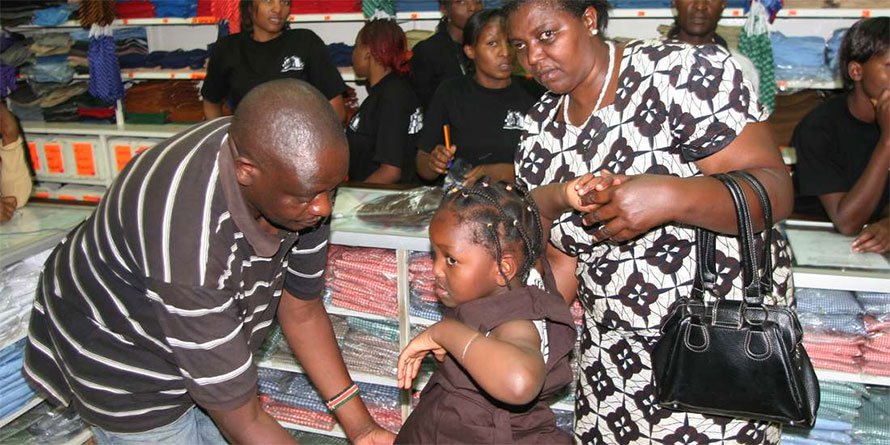[ad_1]
Kenya’s dependence on commodities has worsened, a new United Nations Conference on Trade and Development (UNCTAD) report has shown, pointing to increased exposure to price shocks.
Kenya’s commodity exports as a share of total value of merchandise exports rose to 72 percent in 2017, from an average of 67 percent of the value between 2013 and 2017, the new report shows. It is also above the 71 percent posted in 1995.
This means that Kenya is more vulnerable to negative commodity price shocks and price volatility. UNCTAD Secretary-General Mukhisa Kituyi called for diversification of the economy to lower dependence on commodities.
“Given that commodity dependence often negatively impacts a country’s economic development, it is important and urgent to reduce it to make faster progress towards meeting the sustainable development goals,” said Dr Kituyi.
Commodity dependence can affect economic growth and welfare in the short and medium terms as it increases the vulnerability of countries to price shocks.
UNCTAD considers an economy to be dependent on commodities when the share of its commodity exports in total merchandise sales is more than 60 percent.
According to the UNCTAD report, commodity-dependent countries have increased from 92 between 1998 and 2002 to 102 between 2013 and 2017, being the highest level in 20 years.
Kenya’s commodity exports were valued at $4.148 billion (Sh419.5 billion), equivalent to 5.2 percent of gross domestic product (GDP). This is down from 9.7 percent of GDP in 1995 when earnings totalled Sh132 billion.
Agricultural commodities take up 61 percent of total commodity exports from an average of 57 percent in the five years to 2017. Fuels, ores, metals, precious stones and non-monetary gold take up 11 percent.
The volume of tea exports rose by 7.2 percent from 467, 0000 tonnes in 2017 to 501,800 tonnes last year, according to data from Kenya National Bureau of Statistics (KNBS).
However, the value of tea exports declined by 5.7 percent to Sh138.8 billion in 2018 due to a fall in international prices.
“In 2018, the unit price of one kilogramme of the two leading export commodities, tea and coffee, fell by 12.2 percent and 4.2 percent to Sh276.70 and Sh516.9, respectively,” KNBS noted pointing to vulnerability of commodities.
With agricultural activities highly dependent on rain, the economy is exposed to not only a threat of fall in prices in the international market but also drought that hurts production.
A recent report by Amana Capital says that the main problem with the structure of Kenya’s exports is that none of them are essentials.
“This means, with an adverse economic movement in the destination country, demand would drastically drop and they all have alternatives,” said Reginald Kadzutu, Amana Capital Chief Investment Officer.
The main export, tea, has dropped in price by 11 percent since October 2018, which will further hurt the country’s export earnings, according to Mr Kadzutu.
“Kenya’s position as the third largest producer globally is also under threat from concerted efforts from the governments of Sri-lanka and Vietnam to increase yields, while Kenya’s tea production is still run by small- scale farmers,” he added.
Lead agriculture economist at World Bank Ladisy Chengula said during recent release of Kenya country economic report that agriculture remains significantly exposed to climate change given the low levels of investment in projects such as irrigation.
“Depending on rain will not take economy anywhere. More disastrous years could be coming,” said Mr Chengula.
Agriculture remains the dominant sector in the economy accounting for about a third of the total value of the economy and its growth direction usually dictates the pace of growth in GDP.
UNCTAD report notes that 89 percent of countries in Sub-Saharan Africa are commodity-dependent, making it the hardest-hit region.
Average commodity price levels between 2013 and 2017 were substantially below their peak of between 2008 and 2012, according to UNCTAD.
This, it added, contributed to an economic slowdown in 64 commodity-dependent countries, resulting in the accumulation of public debt.
The external debt of 17 commodity-dependent developing countries increased by more than 25 percent of GDP between 2008 and 2017, according to the report.
Kenya is among countries whose debt has surged in recent years hitting a high of Sh5.42 trillion last week. The external debt was at Sh2.7 trillion at the close of last week.
[ad_2]
Source link
Kenyan Business Feed is the top Kenyan Business Blog. We share news from Kenya and across the region. To contact us with any alert, please email us to [email protected]











